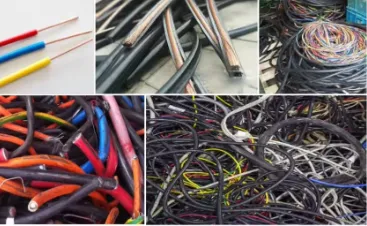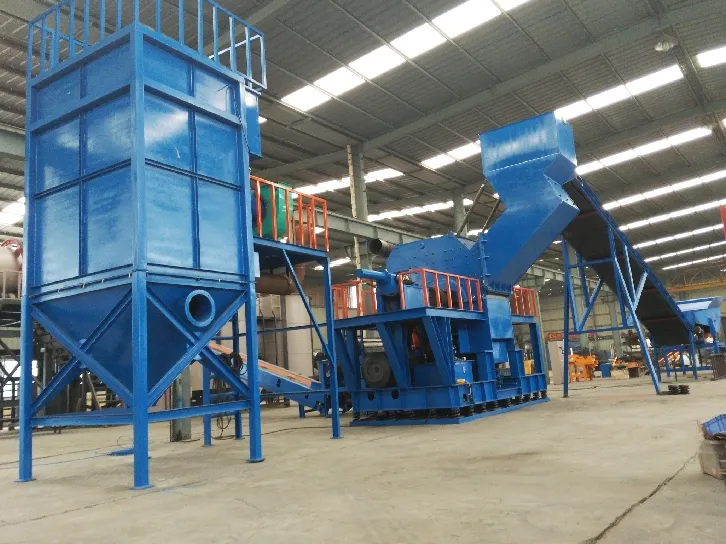Navigating the intricate realm of scrap processing plant operations is an endeavor that melds engineering precision with environmental stewardship. The landscape of scrap processing has evolved significantly over the years, driven by technological advancements and the pressing necessity for sustainable industrial practices. Understanding this transformation provides a window into the future of materials management, recycling, and resource conservation, offering opportunities for those invested in advancing this vital segment of the manufacturing industry.

A scrap processing plant serves as the cornerstone of the recycling industry, converting discarded materials into valuable resources that can re-enter the supply chain. This facility's core processes include sorting, shredding, melting, and refining ferrous and non-ferrous metals. These metals are sourced from various industries, ranging from automotive to telecommunications, and are integral to making new products. Modern plants integrate sophisticated machinery capable of processing and sorting materials with pinpoint accuracy, thus minimizing waste and maximizing productivity. One key example is the deployment of advanced sensor-based sorting technology that differentiates materials with electrical, magnetic, and optical recognition capabilities.
The efficiency of a scrap processing plant significantly hinges on its ability to adapt to the variability in the incoming material's composition. Plant operators possess a wealth of experience in managing this variation, ensuring that throughput and material purity meet or exceed industry standards. Furthermore, the flexibility in handling different types of scrap—such as electronic waste, aluminum cans, and copper wires—demands a deep understanding of metallurgical properties and processing methods, underscoring the expertise embedded within these facilities.

Operational expertise in a scrap processing plant is not only about handling materials effectively but also ensuring that strict environmental standards are upheld. Environmental regulations require that plants implement measures to control emissions, manage waste sustainably, and minimize their carbon footprint. Operators are adept at utilizing technology solutions like emission control systems and water treatment facilities to meet compliance standards while also working towards attaining certifications that validate their environmental commitments.
Establishing authority in the scrap processing industry involves continuous innovation and adaptation to new recycling technologies. Companies leading the charge often invest heavily in research and development, exploring novel methods for increasing plant efficiency and resource recovery rates. Partnerships with universities and technological institutes contribute to staying at the forefront of industry advancements, presenting a collaborative approach to solving complex recycling challenges. Such endeavors build authority by demonstrating industry leadership and commitment to advancing recycling practices.
scrap processing plant
Trustworthiness in scrap processing operations is built upon transparency and adherence to regulatory and ethical standards. Plants must implement stringent monitoring and reporting mechanisms to ensure that every phase of the recycling process—from material intake to final product delivery—is systematically checked and documented. Engaging with stakeholders, including local communities and regulatory bodies, enhances trust as it reflects the plant's dedication to being socially responsible and environmentally conscious.
In essence, scrap processing plants exemplify the fusion of state-of-the-art technology, expert oversight, and commitment to sustainable practices. By continuously enhancing their operations, these facilities contribute significantly to a circular economy, where the reuse and recycling of materials become the cornerstone of product lifecycle management. This endeavor not only conserves natural resources but also reduces landfill use, diminishing the ecological impact of industrial waste.
Advancements in automation and digitalization are set to further revolutionize scrap processing. Smart sensors and IoT (Internet of Things) devices enable real-time monitoring of plant operations, forecasting maintenance needs, and optimizing process flows for increased efficiency. Artificial Intelligence (AI) applications hold tremendous potential for predictive analytics, allowing operators to preemptively address challenges and achieve unmatched levels of operational excellence.
Conclusively, scrap processing plants stand as pivotal infrastructures within the industrial landscape. By converting waste into value, they serve not only as processors of materials but as pioneers in sustainable industrial practices. Through the harmonious blend of experience, expertise, authority, and trust, these plants not only address today's recycling needs but pave the way for a more sustainable and resource-efficient future.



